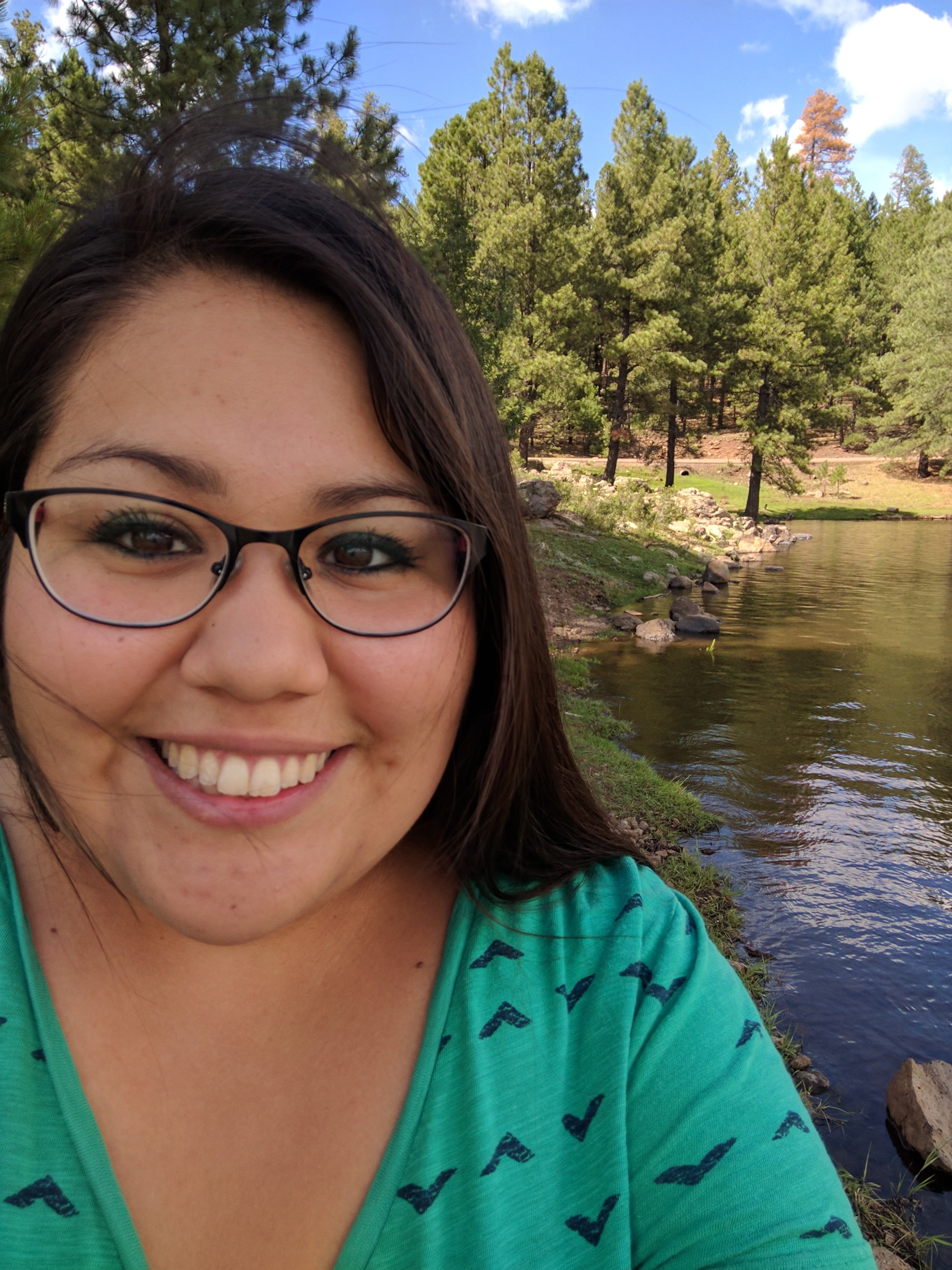
Alumna Jacqueline (Jacque) Peña (B.S., biology, ‘16) is one of 45 doctoral students to be awarded the Howard Hughes Medical Institute’s 2020 Gilliam Fellowships for Advanced Study. This prestigious award will provide Peña with a stipend and allowance for professional development workshops and graduate-level diversity activities at her doctoral institution, the University of Georgia.
The Gilliam Fellowship also will empower Peña’s graduate advisor assistant, professor Douda Bensasson, with funds and training to increase diversity and inclusion efforts. With the help of this award, Peña and Bensasson will host Diversify-STEM coffee hours to build community and support networks for underrepresented graduate students at the University of Georgia.
“What attracted me to join the Bensasson lab is that my advisor and I have a great relationship, and we’re open to talking about different things, especially making sure the sciences are more inclusive of different people,” said Peña. “With all the racial injustice going on it’s validating that we’re getting funding to promote diversity and inclusion.”
Peña began her academic career at Boise State University, supported by the Keith Stein Blue Thunder Marching Band Scholarship as a piccolo player. She eventually began working with biology professor Jen Forbey to study herbivore interactions between the greater sage grouse and sagebrush. For this work, she was supported with funding from state agencies as well as multiple programs funded by the National Science Foundation, including the Louis Stokes Alliance for Minority Participation and Idaho Established Program to Stimulate Competitive Research.
“Although Jacque entered my lab with minimal research experience, it was clear that she brought contagious enthusiasm and dedication to science. With that dedication she quickly mastered skills in ecology, chemistry and parasitology. I am so proud of her and know she will be an inspiration to others,” said Forbey.
Through this hands-on research, Peña discovered a desire to dive more deeply into biology. Initially, she believed that her interest in science might lead to a career in medicine, but ultimately found that lab research was too inspiring to pass up.
“I started doing research in Jen’s lab, and doing research is way more fun and way more exciting. So then I started looking into graduate programs, because I wanted to still be in academia,” said Peña.
Upon graduating from Boise State, she pursued graduate school at Utah State where she earned her master’s degree in ecology in 2018. There, she was working with advisor and professor of wildland resources and ecology, Peter Adler, on how climate change impacts grass species. This field of study then fueled her desire to answer an even bigger question.
“I started looking for PhD programs where I can continue to ask the broad question ‘how do natural populations or how do organisms respond to climate change?’” said Peña.
At the University of Georgia, Peña has developed a research project centering on the biogeography of wild yeast from oak trees spanning from the Northeast to the Southeast to ascertain how fungal microbes respond to temperature changes and ultimately global climate change. Over the next three years, Peña will tackle this question.
“I became deeply captivated by isolating yeast from trees and culturing them, and then getting a sense of their biogeography,” said Peña.